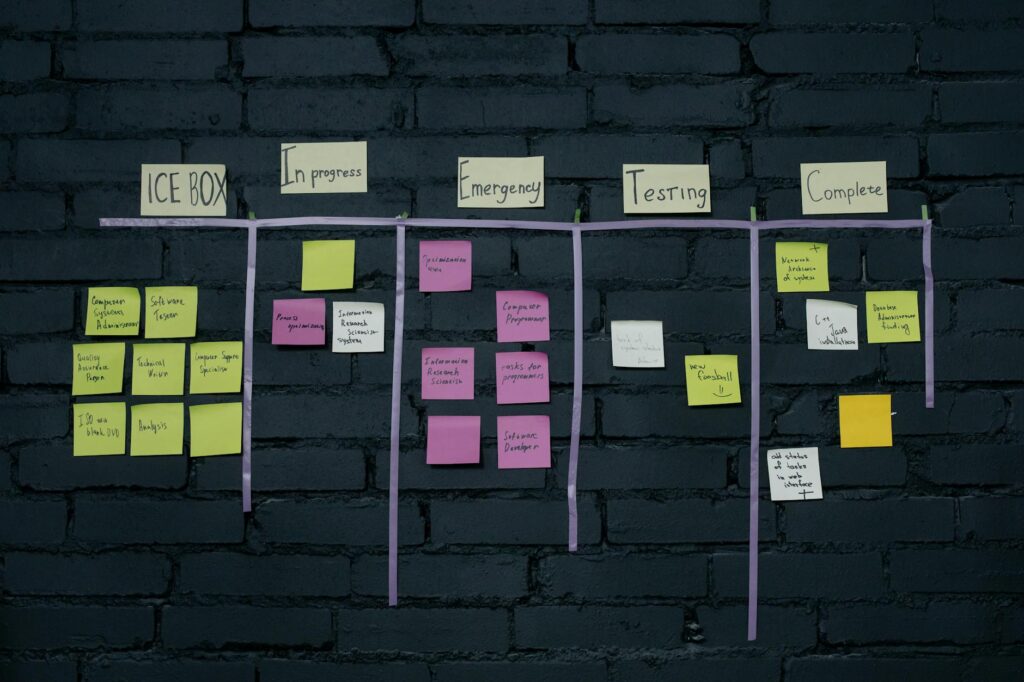What is agile methodology?

What is agile methodology?
Agile methodology has transformed the landscape of project management and personal productivity. It’s a flexible, iterative approach that emphasizes collaboration and adaptability. By focusing on delivering value quickly and efficiently, agile has become a cornerstone for teams striving for effectiveness in their workflows. Whether you’re managing a software project or juggling personal tasks, understanding agile can enhance your productivity and foster a more balanced life.
Understanding Agile Methodology
Agile methodology is not just a set of processes; it’s a mindset that prioritizes responsiveness and collaboration. At its core, agile promotes an iterative approach to project management, breaking down tasks into smaller, manageable pieces. This allows teams to adapt to changes and continuously improve their performance.
Definition of Agile Methodology
In simple terms, agile methodology is a project management framework that encourages teams to work in small, cross-functional units to deliver value incrementally. Each iteration, or sprint, typically lasts a few weeks and culminates in a working product or feature. This approach allows for constant feedback, ensuring that the final product aligns closely with user needs and expectations.
Core Principles of Agile
The Agile Manifesto, established in 2001 by a group of software developers, lays out four key values that guide agile practices:
- Individuals and interactions over processes and tools – While tools and processes are essential, the people doing the work are more crucial for success.
- Working software over comprehensive documentation – Delivering a functional product is more important than extensive documentation.
- Customer collaboration over contract negotiation – Engaging with customers throughout the project fosters better outcomes.
- Responding to change over following a plan – Being adaptable to changes leads to improved project results.
For a more in-depth exploration of agile principles, you can refer to Agile 101.

Photo by cottonbro studio
Benefits of Agile Methodology
The agile methodology offers numerous advantages that can significantly enhance both personal and professional projects.
Enhanced Flexibility and Adaptability
Agile methodologies allow teams to pivot quickly in response to changing requirements or market conditions. This flexibility means that project teams can incorporate feedback and adjust their strategies without derailing the entire project. By embracing change, teams can ensure they’re always working on what’s most relevant.
Improved Collaboration and Communication
One of the standout features of agile is its emphasis on communication. Regular check-ins, such as daily stand-up meetings, foster transparency and collaboration among team members. Stakeholders are also kept in the loop, which helps to avoid misunderstandings and ensures everyone is aligned toward shared goals. For insights on the benefits of agile teamwork, explore The Benefits & Advantages of Agile.
Faster Delivery and Time Management
Agile methodology leads to quicker project deliveries by breaking work into smaller, manageable chunks. Teams can produce and evaluate their work regularly, allowing them to identify issues early and fix them right away. This continuous delivery model means that projects can adapt and evolve, ultimately leading to a more efficient use of time and resources.
Common Agile Frameworks
Several frameworks fall under the agile umbrella, each with unique features that cater to different project needs.
Scrum
Scrum is one of the most popular agile frameworks. It emphasizes structured roles, events, and artifacts to foster collaboration. In Scrum, team members take on specific roles, including the Scrum Master, who facilitates the process, and the Product Owner, who represents stakeholders. The framework is organized into sprints that typically last two to four weeks, during which a defined set of tasks is completed. Scrum also includes ceremonies like sprint planning, daily stand-ups, and sprint reviews, which enhance accountability and communication.
Kanban
Kanban is another agile framework that focuses on visualizing workflow. It uses boards to display tasks at various stages of completion, allowing teams to identify bottlenecks and optimize their processes. Unlike Scrum, Kanban does not have predefined roles or time-boxed sprints, making it a more fluid approach that can be adapted to any work environment. For more on Kanban principles, check out What Is Agile Methodology in Project Management?.
Implementing Agile Methodology in Your Workflow
Integrating agile principles into your daily routine can significantly improve your productivity and effectiveness.
Creating Agile Routines
Start by structuring your daily tasks around agile principles. Identify your most critical tasks for the day and break them down into smaller, actionable steps. Use time blocks for focused work sessions, followed by brief breaks to maintain energy levels. Regularly review your progress and adjust your plans as necessary to stay aligned with your goals.
Using Agile Tools for Personal Development
There are numerous tools available that facilitate agile workflows. Popular options include Trello, Asana, and Jira, which help manage tasks, track progress, and foster collaboration. These tools make it easy to visualize your workload and ensure you’re on track with your objectives. For a comprehensive guide to agile tools, consider exploring resources like What Is Agile Methodology? (A Beginner’s Guide).
Conclusion
Agile methodology is a powerful approach that can revolutionize how you manage projects and personal tasks. By embracing its principles of flexibility, collaboration, and iterative progress, you can improve your productivity and enhance your personal and professional growth. Whether you’re part of a team or working on individual projects, adopting agile practices can lead to better outcomes and a more balanced work-life dynamic. Start integrating agile today to unlock your full potential!